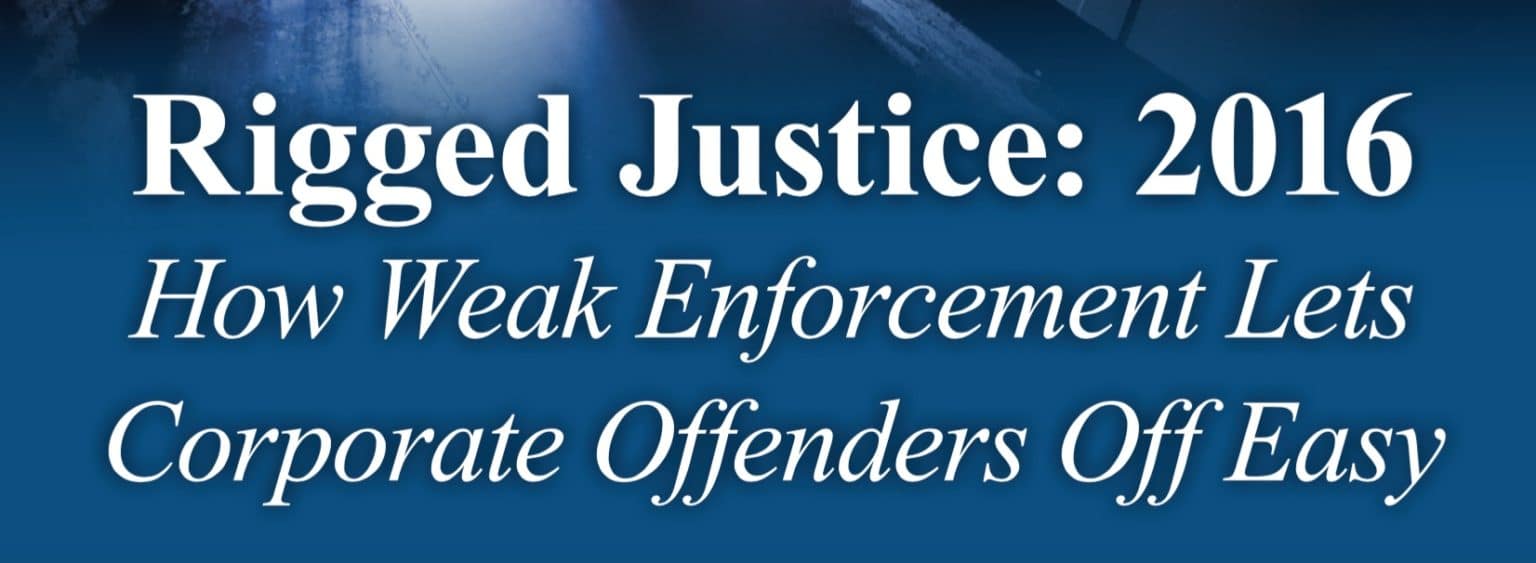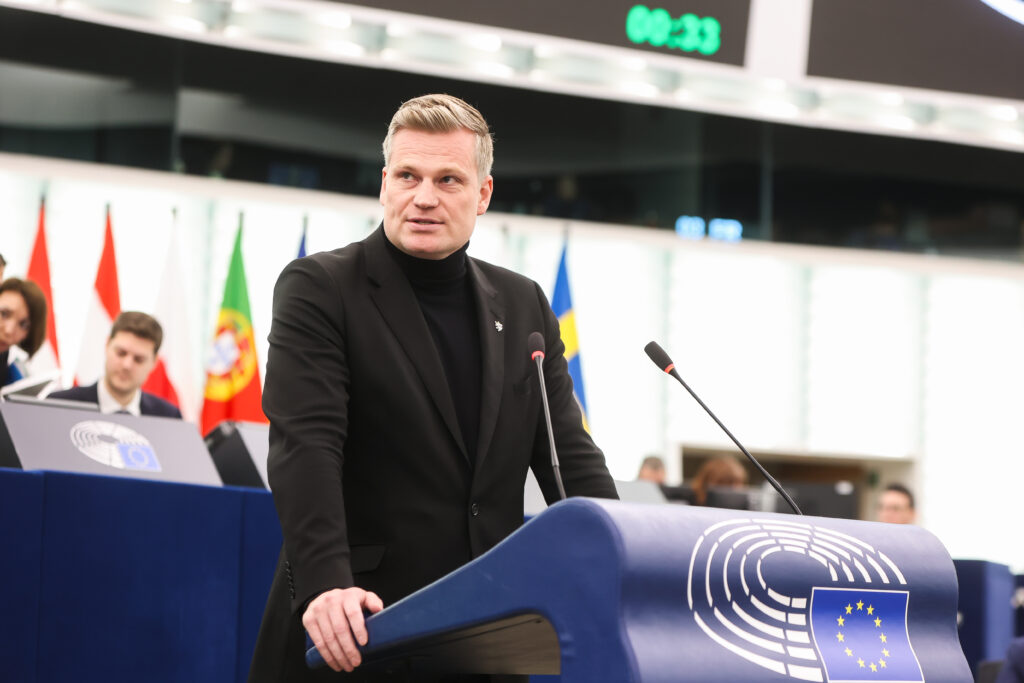In January, Sen. Elizabeth Warren (D-MA) released the report “Rigged Justice – How Weak Enforcement Lets Corporate Offenders Off Easy” detailing what is known as regulatory capture.
A key point made in the report is that serious corporate offenses — even those resulting in massive environmental contamination or deaths — almost never result in criminal charges against the individuals involved. The most likely outcome is always a small fine that, when compared to the corporation’s annual profits, is nothing more than a rounding error.
While “Rigged Justice” did not specifically focus on the Federal Railroad Administration (FRA), an audit of the FRA’s policies on hazardous material transportation by the Office of Inspector General for the Department of Transportation released in February found many of the same issues.
Echoing the message of Warren’s report, the audit notes that “penalties have little deterrent effect, and criminal penalties are not being pursued.”
The audit notes that within the sample of cases reviewed, 17 cases could have been referred for criminal investigation and yet none were. The audit estimates that over 20% of all violations could be reviewed for criminal investigation.
“Just Smile and Cut The Check”
Sen. Warren spoke about this issue in early March at an event at the Administrative Conference of the United States where she told the audience, “The message is clear. For the wealthy and the powerful following the law is merely optional.”
Without the fear of criminal prosecutions and knowing that any fines will be just a small cost for doing business above the law, large corporations can continue unsafe practices in the name of greater profits.
In the recent FRA audit it was reported that the “FRA settled for 5.1 percent of the roughly $105.6 million dollars in penalties it could have levied.”
This settling for such a small percentage of potential fines, combined with the absence of any criminal prosecution, is why the audit reported that one FRA employee said the corporate offenders “just smile and cut the check.”
Paper Tiger Regulators
One aspect of regulatory capture is that due to the revolving door, regulators often have incentive to not create strong regulations or enforce existing ones. It isn’t that they can’t enforce strong regulations, but that they lack the will to do so.
In “Rigged Justice,” workplace safety expert Thomas Fuller commented on an Occupational Safety and Health Administration (OSHA) fine for Dupont saying, “These fines are just a drop in the bucket…OSHA is really little more than a paper tiger.”
A stronger statement was made last year about the Pipeline and Hazardous Materials Safety Administration (PHMSA) by Rep. Jackie Speier (D-CA) who said, “PHMSA is not only a toothless tiger, but one that has overdosed on Quaaludes and is passed out on the job.”
Rep. Speier represents the district in California where a pipeline explosion killed 8 people in 2010.
PHMSA is the division of the Department of Transportation that creates the draft regulations regarding hazmat transportation by rail that the FRA ends up responsible for enforcing.
This lack of will among regulatory agencies also showed up in the FRA audit, which noted an environment that did not encourage employees to even report violations:
One inspector noted that the Office of Chief Counsel has effectively “numbed” a large portion of inspectors into not writing violations and stated that some inspectors have preconceived notions that violations will not get through the process.
If a large portion of inspectors are not reporting violations they have found it is clear that Rep. Speier was on to something when she said, “The system is fundamentally broken.”
Lobbyists’ Influence Over Regulatory Process
One fact that Warren’s report points out is that when it comes to new regulations there are many ways that corporations and lobbyists can influence the process. So even if an individual regulatory body wanted to create strict new regulations, the reality is they can’t or at the very least they will have great difficulty in doing so.
“When it comes to undue industry influence, our rulemaking process is broken from start to finish,” Warren explained in her talk earlier this month. “At every stage – from the months before a rule is proposed to the final decision of a court hearing a challenge to that rule – the existing process is loaded with opportunities for powerful industry groups to tilt the scales in their favor.”
At DeSmog we have documented this influence regarding oil-by-rail regulations. Examples include the Secretary of Transportation being denied his request that regulations require the stabilization of volatile crude oil and the many private meetings between industry lobbyists and the White House office that has final say over regulations.
The requirement that oil-by-rail trains have modern braking systems by 2021 is an excellent example of how corporations can control the regulatory process. The industry lobbied hard against this being part of the new regulations but was unsuccessful.
However, soon after the regulations were announced, Matthew Rose, BNSF’s CEO made it clear that the rail industry would not accept this regulation, telling an audience at the annual EIA conference that, “the only thing we don’t like about it [new regulations] is the electronic braking” and “this rule will have to be changed in the future.”
First, an attempt was made to have the Senate strip the requirement from the regulations but that was unsuccessful.
So, language was then inserted into the FAST Act transportation bill that will potentially allow the regulation to be removed based on the results of one “study” that will be conducted. A study — despite the FRA stating that modern ECP braking systems are a proven technology based on a large amount of existing research.
So even when regulators try to do the right thing, members of Congress can easily override them and do the bidding of their corporate donors.
The FRA collected a record amount of fines in 2015 with a total over $15 million. OpenSecrets reported that in the five years prior to 2015, the rail industry spent $200 million on lobbying — far greater than the totals for fines.
While not mentioned in Warren’s report, the oil-by-rail regulatory process over the past several years is an excellent example of all that is wrong with the regulatory process, and how corporate profits continue to take priority over public safety. Senator Warren plans to release a version of this report every year.
Perhaps the FRA will be featured in Rigged Justice 2017?
Subscribe to our newsletter
Stay up to date with DeSmog news and alerts







